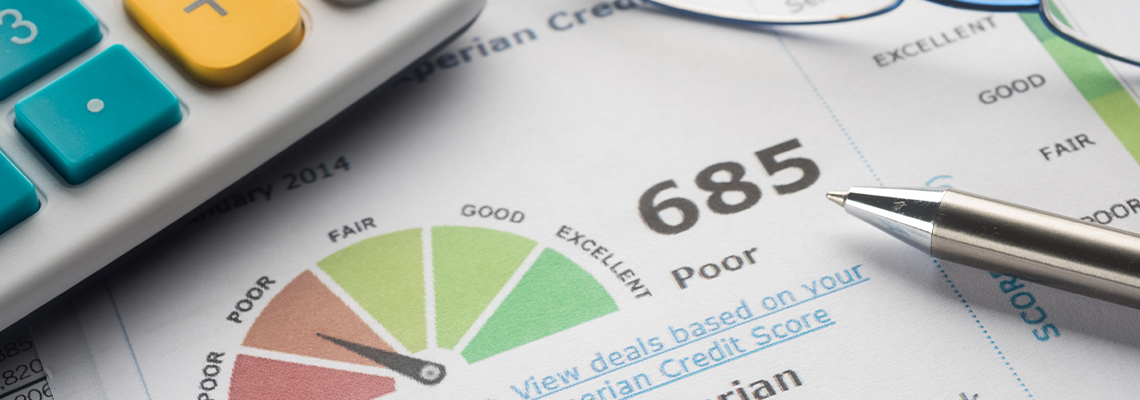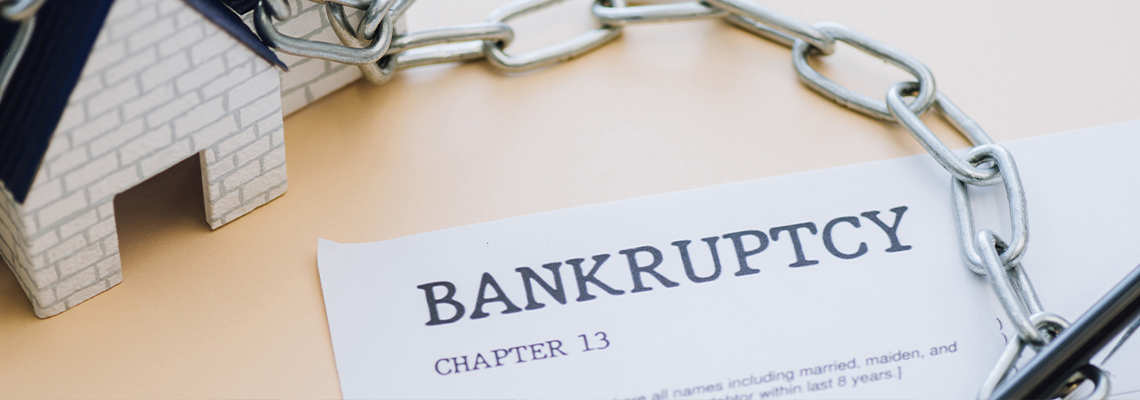Managing your finances can be overwhelming, especially when burdened with significant student loan debt. For many in New Jersey, bankruptcy seems like a potential solution. However, student loans are notoriously difficult to discharge through bankruptcy.

Your Rights to Dispute Errors on Your Credit Report
A good credit score can help you get loans, buy a home, and even get a job.
But what happens when errors on your credit report mess up your financial standing?
Attorney Vera Fedoroff is here to help you understand your rights to dispute errors on your credit report and show you how to correct them. Let's get started.
The Importance of Accurate Credit Reports
Credit reports play a significant role in your financial health. An error on your credit report can harm your credit score, leading to higher interest rates or even loan denials. It can also affect your ability to get a job, secure rental housing, or obtain utility services.
It’s important to stay vigilant and regularly check your credit report. Remember, identifying and correcting mistakes early on can save you time in the long run.
When dealing with credit report errors, legal assistance can be invaluable. A board-certified bankruptcy attorney can help you understand your rights, gather evidence, and file disputes on your behalf.
Common Errors on Credit Reports
Incorrect personal information, such as wrong names or addresses.
Accounts that aren’t yours but show up on your report.
The same account is listed multiple times.
Wrong account status, where current accounts are marked as late or delinquent.
Accounts that should have been removed from your report after the allowed time.
Incorrect balances, with errors in the reporting of how much you owe on your accounts.
Incorrect reporting of the credit limits on your credit cards.
Closed accounts reported as open
Merged credit files, with another person's information included on your credit report.
Reinserted errors, where mistakes reappear in your report after being corrected.
Your Rights Under the Fair Credit Reporting Act (FCRA)
The Fair Credit Reporting Act (FCRA) gives you the right to dispute any inaccuracies in your credit report. Key rights include:
The right to access your credit report: You can get a free copy from each of the three major credit bureaus once a year.
The right to dispute errors: If you find mistakes, you can dispute them with the credit bureau.
The right to a timely response: Credit bureaus must investigate your dispute within 30 days.
The right to have information corrected or deleted: The credit bureau must correct or delete disputed information if it is incorrect.
The right to be informed if your information was used against you: If someone takes adverse action against you, such as denying your credit application, they must notify you if the information in your credit report was the reason.
The right to limit access to your credit report: Your credit report can only be accessed by those who can do so legitimately for matters involving credit, insurance, employment, or other business requirements.
The right to place a fraud alert: If you have been subjected to identity theft, you can place a fraud alert on your credit report, making it harder for identity thieves to open accounts in your name.
The right to seek damages: You can seek damages from violators of the FCRA if they fail to comply with its requirements.
How to Obtain Your Credit Report and Dispute Errors
Before you can dispute errors, you need to review your credit report. Here's how to get it:
Request your report online: Visit AnnualCreditReport.com to get your free yearly report from each of the three major credit bureaus.
Check your report carefully: Look for errors or discrepancies.
Note any issues: Make a list of any errors you find.
Once you have identified errors, follow these steps to dispute them:
Gather evidence: This includes documents that support your claim, such as bank statements or payment records.
Write a dispute letter: This explains the error and provides evidence to the credit bureau.
Submit your dispute: Use certified mail to send your letter and copies of your evidence to the credit bureau.
Wait for a response: The credit bureau has 30 days to investigate and respond to your dispute.
Review the results: If the disputed information is removed from your report, review it again to ensure all errors are corrected.
What Happens After You File a Dispute?
After you file a dispute, the credit bureau must investigate within 30 days. They will:
Contact the creditor to verify the information.
Review your evidence.
Update your report If they find an error and notify you of the changes.
Notify other credit bureaus if an error is corrected because of your dispute, so they can also update their records.
Following Up on Your Dispute
You must follow up on your dispute to ensure it is resolved. Here's how to do it:
Check for updates: The credit bureau should send you a report detailing the results of its investigation.
Verify corrections: Ensure the changes are reflected in your credit report.
Dispute again if necessary: If the error isn't corrected, you may need to dispute it again.
Keep detailed records: To track the process, maintain copies of all correspondence, dispute letters, and credit bureau responses.
Contact the creditor directly: If the credit bureau fails to resolve the error, consider contacting the creditor who reported the information and asking them to correct it with the credit bureaus.
Preventing Future Errors
Follow these tips to avoid future errors.
Review your credit report at least once a year.
Monitor your accounts for any unusual activity.
Use credit monitoring services that can alert you to changes in your credit report.
Safeguard your personal information to reduce the risk of identity theft.
Stay informed about data breaches. If a company you do business with experiences a data breach, place fraud alerts or credit freezes immediately.
Promptly address discrepancies or suspicious activity on your accounts or credit report.
Use strong, unique passwords for your financial accounts and update them regularly to prevent unauthorized access.
Opt for electronic statements to reduce the risk of mail theft.
Review your credit inquiries to ensure they were authorized by you.
Special Considerations for New Jersey Residents
New Jersey residents have additional protections under state law. The New Jersey Fair Credit Reporting Act provides:
Free annual credit reports from each credit bureau.
Prompt dispute investigation and resolution
Enhanced disclosure rights – Credit bureaus must provide clear and easily understandable information regarding your credit file and the steps for filing disputes.
Civil penalties for non-compliance – New Jersey law imposes stricter penalties on credit reporting agencies that fail to comply with dispute resolution rules, offering more robust consumer protection.
Get Help From a Board-Certified Bankruptcy Attorney
With over 20 years of experience in bankruptcy law, Attorney Vera Fedoroff has the skills and knowledge to help you move forward with your life. No matter how difficult your situation is, she will create a plan that fits your needs and guide you through your financial issues. For more information, call Fedoroff Firm LLC today. Your path to financial freedom starts here.
RECENT POSTS
Filing for Chapter 13 bankruptcy can be a beneficial option for those struggling with debt but wanting to keep their assets. This type of bankruptcy allows individuals to reorganize their debt into a manageable repayment plan.


